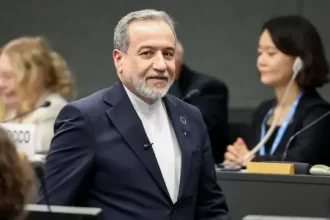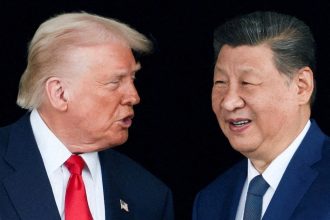Deep in the northern Amazon of Peru, along a quiet bend of the Patoyacu River, 25-year-old Indigenous Urarina leader Wilmer Macusi pointed to a pool of water darkened with oil. “They say this is clean,” he said, swirling a branch through the stagnant water. “But if you move it, oil still comes out.”
The rusting pipeline behind him, part of the network linking Block 8 oilfield to the government-owned North Peruvian Pipeline (ONP), has long been a symbol of broken promises. The nearby Santa Rosa community has witnessed decades of pollution with little relief, despite the billions of barrels of crude beneath their land.
Peru’s northern Amazon was once a booming oil region, producing up to 200,000 barrels per day in the 1980s. But environmental disasters, persistent spills, and community opposition drove production below 40,000 bpd, leaving key blocks dormant by 2020. Today, state oil company Petroperu sees a chance to revive these fields, investing $6.5 billion into upgrading the Talara refinery to produce high-grade fuels for export.
Petroperu claims the region’s reserves could generate $3.1 billion in local taxes. Yet the memories of past spills, contaminated rivers, and forest degradation have left Indigenous communities wary. At the recent COP30 summit, frustration erupted as dozens of Indigenous protesters confronted security guards over forest and climate concerns, highlighting the unresolved tensions in the Amazon.
Petroperu is also exploring oil imports via Ecuador to boost refinery supply. But decades-old infrastructure like the ONP has repeatedly failed, causing leaks, protests, and sabotage. Communities in both Peru and Ecuador remain opposed to expansion.
Efforts to operate major oilfields like Block 192 have been stalled. Indigenous groups demand accountability and remediation for decades of environmental damage, with cleanup costs alone estimated at $1.5 billion. While operators like Upland Oil & Gas have promised jobs, training, and community funding, the reality on the ground remains fraught with mistrust.
Wilmer Macusi reflects the cautious stance of his people: “If the promised benefits don’t come soon, we’ll take measures.” The Amazon oil revival is not just an economic question—it’s a test of trust, justice, and the ability to balance progress with the preservation of life and land.








